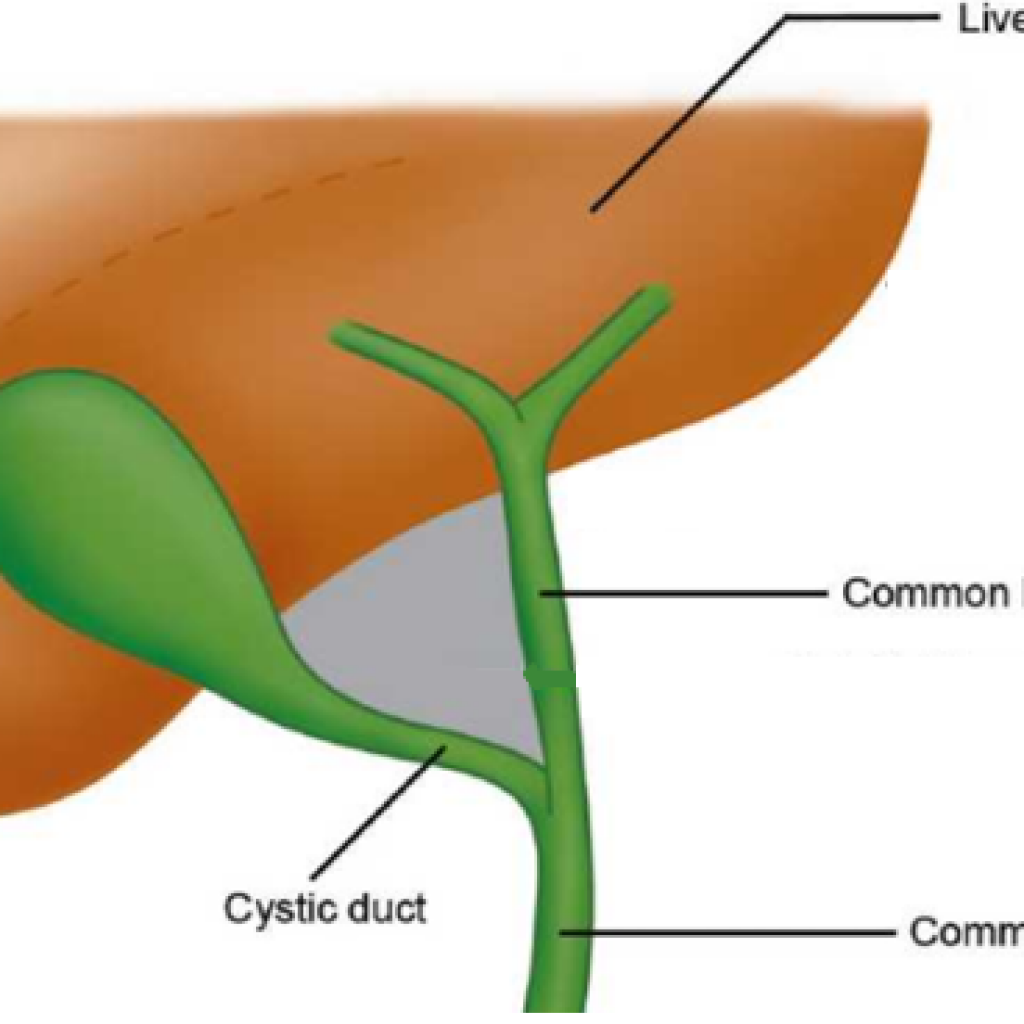The liver produces a green-yellow fluid called bile, and stores it in the gall bladder. Bile is needed to digest any lipids (fats) in your diet.
Bile flows from the liver through the hepatic duct. Bile within the gallbladder enters the cystic duct. Figure 1 shows the anatomy of the gallbladder and liver.
It is well-established that sugary-drinks are linked to higher blood glucose levels, obesity and type 2 diabetes. A group of Swedish scientists investigated whether biliary tract and gallbladder cancer are associated with sweetened-drink consumption.

Image modified from: Perera, J Clin Imaging Sci 2011, 1:2
Susanna Larsson and her team studied the dietary and lifestyle habits of over 70,000 male and female adults, aged 45-83 (average age = 61), and then followed them up after approximately 13 years to identify the incidence of biliary tract cancers. Biliary tract cancer, also known as bile duct cancers, can affect any part of the bile ducts, including the ones inside the liver (intrahepatic) and the ones outside the liver (extra-hepatic).
The group found that adults who consumed the highest quantify of both sugar and artificially sweetened drinks had a significantly increased risk of developing extra-hepatic biliary tract cancer and gallbladder cancer. Other illnesses such as obesity and differences in education and lifestyle habits were taken into consideration. Additionally, individuals with a previous history of diabetes or cancer were excluded from the results.
When compared to those who drunk no sweetened drinks, adults who consumed 2 or more 200ml servings per day had an increased risk of developing extra-hepatic biliary tract cancer. Their risk of developing gallbladder cancer more than doubled. There was also an increased risk of developing intra-hepatic biliary tract cancer in the group that consumed over 400ml of sweetened drinks every day. In the group that consumed over 400ml of sweetened drinks per day, the risk of intrahepatic biliary tract cancer increased by two thirds.
A possible reason for is that consumption of sweetened drinks rapidly raises blood glucose (sugar) and insulin levels. Previous research has shown that elevated fasting blood glucose levels are associated with an increased risk of gallbladder and biliary duct cancer (1).
It is important to point out that of the 70,000 people included in the study, only 150 people developed biliary tract / gallbladder cancer over the 13 year period, so although the risks of developing cancer increased, they still remained very small.
This particular study was limited in a few ways. Firstly it was an observational study. This means that it was difficult for the researchers to accurately control the amount of sweetened drinks consumed by the participants. Secondly, the participants were all middle-aged, the results may not necessarily apply to the general population. Thirdly, the study did not investigate if drinks containing artificial sweetener or sugar affected the risk of biliary tract and gallbladder cancer differently.
Although further research is needed, it seems sensible to avoid both artificially and sugar-sweetened drinks. If you are thirsty, why not drink water in order to maintain a healthy lifestyle?!
1 Rapp K, Schroeder J, Klenk J, et al. Fasting blood glucose and cancer risk in a cohort of more than 140,000 adults in Austria. Diabetologia. 2006;49(5):945–952.







